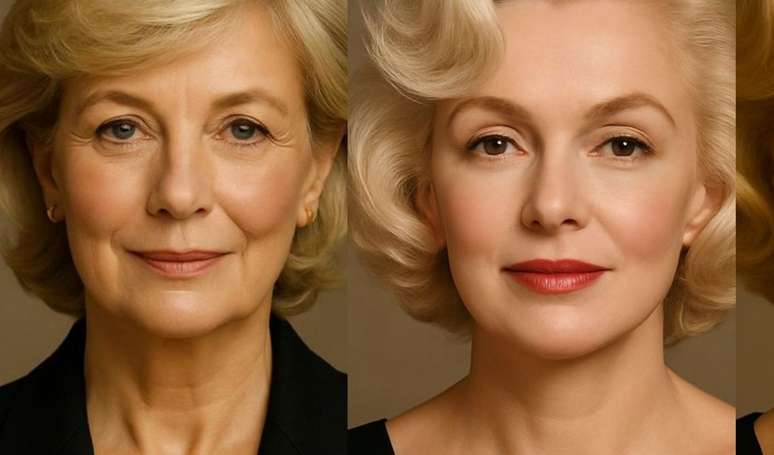Physiotherapist Débora Pádua provides insight into menopause and its effects on a woman’s body
Women’s lives are marked by a series of steps involving menstruation, starting from menarche and ending with it. This period in which the woman stops bleeding and is officially sterile is called menopause and is a cause for great doubts, especially about her sexual life. These hormonal changes usually occur as a result of natural aging, except in a few specific cases. Therefore, a major change in the body has some effects and may be related to sexual intercourse. This theme too is often mistakenly associated with the extinction of sex in the lives of menopausal women. But the truth is, you don’t have to suspend any activity. Indeed, this act is beneficial. To demystify some themes, the pelvic physiotherapist
Deborah Padua*
clarifies some of the most frequently asked questions regarding menopause and sex. Check below:
How do I know if I’m already in menopause?
The first point to mention is that menopause can occur between the ages of 45 and 55 – the most common age being around 50. But how to identify if you are going through this phase? Next, take a look at some common symptoms that can help you recognize.
1. Menstrual irregularities
This identification can be made by observing the amount of flow expelled and menstrual failures. For example, going two months without having a period and then your period starts again.
2. Feeling hot
This symptom is one of the most reported. It causes hot flashes, tiredness, sweating, dizziness and there are also reports of heart palpitations.
3. Vaginal dryness, penetration pain and lack of libido
These 3 symptoms are related to each other. With menopause there are some significant hormonal changes that alter some aspects of the female body.
4. Changes in behavior
As mentioned above, this period is marked by a major change in the female body. In this way, psychic symptoms can also be identified. It is possible that the woman has more pronounced irritability, emotional instability, anxiety, insomnia, among others.
5. Skin, hair and nail changes
It is possible for some individuals to experience weakening of their hair and nails, as well as having changes in their skin.
6. Fat concentration and bone loss
Fat becomes less distributed, accumulating mainly in the abdomen region. Therefore, heart-related diseases are also part of the risks after menopause. Bones are also weakened due to the possibility of weight loss. These are some symptoms that may indicate that you have entered the menopause process. However, it must be emphasized that many may not show the signs listed. There are therefore individuals who can go through this phase without showing any symptoms, but this portion does not represent the majority of cases of menopause.
Is it normal to feel pain during intercourse after menopause?
“It’s common, but not necessary”comments Débora Pádua. The main causes of discomfort and pain during intercourse are associated with a decrease in the production of specific hormones.
Loss of elasticity and lubrication is one of the main causes of this discomfort in the vagina. “The ovaries end up producing certain hormones such as progesterone and estrogen, the latter is what a woman needs most for her body to function normally. Therefore, it is responsible for a woman’s arousal and desire,” she explains. the specialist. In menopause the ovaries decrease their production until they reach the complete loss of functionality. This way, if there is a fall or a lack of these hormones, vaginal lubrication will suffer. The decrease in estrogen can also cause a decrease in the elasticity of the vagina.
“During this time, the lining of the vagina thins and, in addition to losing lubrication, also loses elasticity, making sexual intercourse more painful. Which can end up causing cracking in the region”
emphasizes the physiotherapist.
How can I continue my sex drive after menopause?
The onset of a woman’s sexual process occurs in several ways. She aligns her desire for her with her partner’s urges and this desire is often related to everyday life.
“Many women have desire, some less, but most need more stimulation to achieve the same arousal as before menopause”
contextualize. Also, it is possible to experience pleasure during this period. What happens is, at this stage, many women end up feeling discomfort or even pain during intercourse. As mentioned above, this situation can be caused by vaginal dryness, loss of elasticity, among others. Therefore, it is important to seek an expert at the very beginning of the emergence of the first signs of discomfort in sexual intercourse. The doctor will evaluate the causes of your pain and indicate the best way out.
“Some indications may work as lubricants, creams with hormones and vaginal moisturizers”
says Débora Pádua.
html[data-range=”xlarge”] figure image img.img-234e75d4a76a635877486f3b6299966bfp5c3p3e { width: 774px; height: 506px; }HTML[data-range=”large”] figure image img.img-234e75d4a76a635877486f3b6299966bfp5c3p3e { width: 548px; height: 358px; }HTML[data-range=”small”] figure image img.img-234e75d4a76a635877486f3b6299966bfp5c3p3e, html[data-range=”medium”] figure image img.img-234e75d4a76a635877486f3b6299966bfp5c3p3e { width: 564px; height: 368px; }
Are there any treatment options?
With the progress of modern medicine, it is currently possible to circumvent some adverse reactions present in such a delicate period for women. The pelvic physiotherapist indicates the main treatments used to relieve symptoms and improve the patient’s sex life during and after menopause:
- various hormone substitutes;
- pelvic physiotherapy;
“Today hormone replacement is more used, but when this treatment does not promote the expected effect we can look for other allies such as treatments such as pelvic physiotherapy and laser”concludes the expert.
Therefore, it is possible to carry out a combination of actions and medical indications to alleviate the symptoms and changes caused by menopause. That is, the woman no longer needs to experience a strong surge of symptoms during and after menopause, nor to give up her sex life completely.
*Débora Pádua is a pelvic physiotherapist specialized in the treatment of sexual dysfunctions. Clínica Débora Pádua is the first
Clinic in Brazil Specializing in the treatment of vaginismus, dyspareunia and vulvodynia with headquarters in São Paulo, branch in Campinas and online service
Source: Terra
Ben Stock is a lifestyle journalist and author at Gossipify. He writes about topics such as health, wellness, travel, food and home decor. He provides practical advice and inspiration to improve well-being, keeps readers up to date with latest lifestyle news and trends, known for his engaging writing style, in-depth analysis and unique perspectives.





![Everything for pre -light: Victoria Solen is bent … which is waiting for you on Tuesday, August 12, August 12, 2025 in 42 episodes [SPOILERS] Everything for pre -light: Victoria Solen is bent … which is waiting for you on Tuesday, August 12, August 12, 2025 in 42 episodes [SPOILERS]](https://fr.web.img3.acsta.net/img/94/98/9498e97473cd445af2e7f350b91d357e.jpg)


